Review of De-Lovely
Introduction
This is a rather stagey but ultimately very touching biopic of Cole Porter (1891-1964), one of the greatest songwriter-composers of the Jazz Age and easily the greatest musical wit of the 20th Century. The film relates his rocky relationship with his devoted wife and muse Linda.
Shot here in the UK, the film is the last breath of the composer as his life flashes before his eyes in a musical extravaganza directed by "Gabe" (Jonathan Pryce) who might just be the archangel Gabriel. The filming location of these bridging sequences would appear to be the old Wilton`s Music Hall in London.
Kevin Kline as Cole Porter effortlessly owns the picture, taking Porter from youth to his passing. He remains engaging and sympathetic in spite of his frequent emotional abuse of his wife Linda, played with an astonishing mixture of strength and vulnerability by Ashley Judd. It is obvious throughout the film that this distinctly odd couple are completely and totally in love and yet, like so many in the public eye, that is not enough for Porter and his extramarital tastes eat away at the best, most stable relationship in his life.
Throughout the picture, Porter`s sexual ambivalence is embraced rather than glossed over (as it was in the 1946 Warner Bros biopic "Night and Day", where Porter was played by Cary Grant. A clip of the biopic is included in the movie to great effect). Porter`s relationship with Linda (most notably their attempt to have a child together) indicates he was not only attracted to men but also one specific woman. He had married Linda on the understanding that he liked men more than she did, and yet their relationship remained close in spite of his predilection for handsome young chaps. Had he found a steady gay relationship to complement the one he had with Linda, everything would have been fine. Instead he cruises the gay bars of the 1930s and leaves himself open to blackmail at the hands of Bobby Reed.
Much of the damage that happens to Porter`s relationship with Linda is caused by his friendship with The Man Who Came To Dinner - the ebullient actor Monty Woolley - who would appear to be a bad influence on Porter throughout his life. He regularly sets Porter up with assignations that inevitably affect his relationship with Linda.
Then they are brought together again by a riding accident which nearly costs Porter both his legs.
The movie has a stellar cast of supporting actors and actresses - all British - and a cracking number of cameos by modern vocalists including Robbie Williams, Elvis Costello, Mick Hucknall (as Nelson Eddy), Alanis Morissette and a whole bunch of others. In the acting stakes special mention should be made of Kevin McNally and Sandra Nelson as the Murphys, the Porters` US ex-pat best friends and neighbours in France. Allan Corduner turns in a suitably rakish performance as Monty Woolley. Peter Polycarpou features as Louis B Mayer and Keith Allen is nicely subdued as Irving Berlin.
The moment in the picture that I`d class as a showstopper is when Porter coaches "Jack" (John Barrowman) through "Night and Day" and the camera makes a series of looping passes around the actors, moving seemlessly from rehearsal to first night performance.
Beautifully photographed, with immaculate production values, this is a genuinely touching movie with some great vocal performances. Wonderful. Bring a hankie.
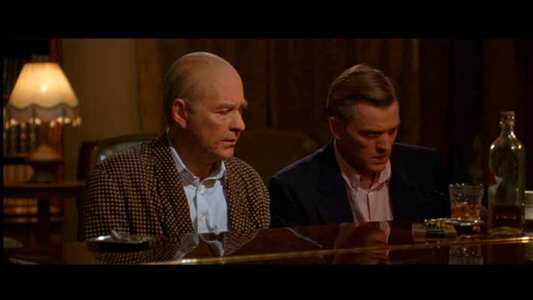
Video
Shot in 2.35:1 Panavision, the film is presented in anamorphic widescreen. The image is completely defect-free, colours and contrast are outstanding. The movie was photographed by Tony Pierce-Roberts whose CV includes Underworld (2003), Blackadder Back & Forth (1999), Howard`s End (1992), A Room With A View (1985) and the tv series Dinotopia. Given his work on some of the more lyrical titles mentioned, he brings 1930s Hollywood to life in a series of largely UK locations.

Audio
The soundtrack is in Dolby Digital 5.1 with a subtle, atmospheric soundstage which is very pleasing to listen to. The highlights are, of course, the Cole Porter songs. A great many of these are performed by Kevin Kline as the composer. His voice is quite far from professional, but then my intelligence would be insulted if he sang like Bing Crosby. His voice is believable and stands up well in comparison with the real Cole Porter`s voice which renders "You`re The Top" over the end titles.

Features
There is a 24 minute "Making Of De-Lovely" featurette which doesn`t go into great depth but is interesting. In similar vein is the "Music Of De-Lovely" which goes into the musical cameos of the vocalists featured in the movie. Two scenes - Be A Clown and the haunting "Love For Sale" are analysed in greater detail in two short featurettes. A set of non-anamorphic deleted scenes are also included. The alternate ending would have people throwing their popcorn at the screen. There is a 30 second tv spot for the soundtrack of the movie and a trailer. There are two full-length audio commentaries (with subtitles), one by director Irwin Winkler and Kevin Kline and the second by the director and writer Jay Cocks.
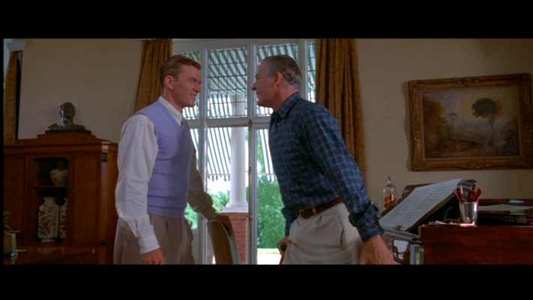
Conclusion
A De-Lovely movie that affected me more than I thought when I was watching it. A touching story about a curious couple who were at the centre of high society in the 1930s. Taking them from their first meeting in the 1920s through to Cole Porter`s passing in 1964, it charts the influence of the great American songwriter in the 20th Century and an unconventional love story. Bring a hankie.
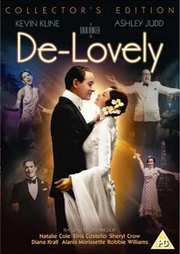

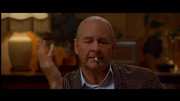
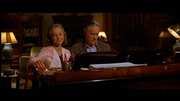

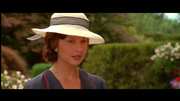
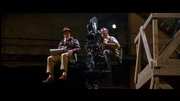
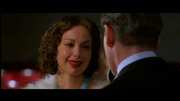
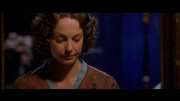
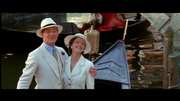
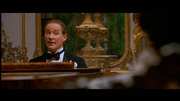
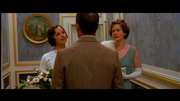
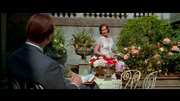
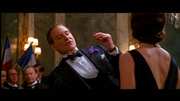
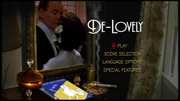
































Your Opinions and Comments
Be the first to post a comment!